Russia in Fantasy Books: Egyptomania for Readers
Imperialism, Orientalism, white supremacy, indigenous erasure, racism, cultural appropriation.
Russian coding in fantasy literature is something I have been wanting to discuss for a very long time as it has been the bane of my existence ever since I immigrated to the West and learned English.
There’s plenty to discuss here.
Obligatory Disclaimer
I try to uphold a policy of not speaking poorly of fellow independent authors’ works unless they are well-known, so I will be adhering to that philosophy in this essay. That said, I will make strong allusions where appropriate, as I did in my previous publication.
When it comes to traditionally-published works, that’s fair game and I will be naming and shaming as they come up. I will also touch on non-book media like motion picture and videogames as I see fit.
So, hold my hand and let me walk you through the Fold.
Let me first expound upon what exactly Russian “coding” even means.
“Coding” in literature, and elsewhere, is the allegory of or reference to real-life cultures or peoples in an otherwise Other world—be that sci-fi, fantastical, alternative history, what have you. Obviously, the subject today is fantasy.
Russian coding, therefore, is the presence of a Russian analog in a given piece of fiction, like Ravka in mon ennemi juré L. Bardugo’s Shadow and Bone and co., or the disgraced Emily A. Duncan’s Kalyazin in Wicked Saints (why does this country have a surname for a title…? I don’t know, why is Duncan an Antisemite?), or Riaznin (also a surname) in Catherine Purdie’s Burning Glass.
With that, let’s keep walking.
Imperialism
There is nothing quite as virulent as the West’s obsession with the Románovs (I’m actually the one pronouncing it correctly; get off my turf).
When people say they are “fascinated by Russian culture” or something to that effect, it is almost guaranteed that they are speaking of the Russian nobility: the eye-straining gilt, the crimson velvet and pearl embroidery, the kokoshniks and sarafans bastardised into royal attire by Prussia-born princesses.
Colonial culture is not a nation’s folk culture. Románov culture is not “Russian culture”.
These Russia analogs in fantasy books whitewash, erase, sugarcoat the extensive history of Russian imperialism. Of mass deportations and genocides of Kalmyks, of Circassians, of Karachays. Russia’s colonisation of Siberia and Sápmi and the Caucasus. The bloodshed and horror of slavery under imperialistic Tsarist structures and the humanisation attempted by the West of one of the most notoriously cruel royal families. And because the West is itself inherently imperialist, it has no issue enabling other forms of it, whether that be Japanese imperialism, Sinocentrism, or, indeed, Russian imperialism. In the process, truth is eroded and the West continues to view Russia as a homogeneous Slavic country when it is so exceedingly far from it.
That being said, I personally don’t believe Westerners should be writing working class and folk Russian culture, merely given the Western-Eastern dynamic and the inherent imbalance of societal and global power therein.
However, Western authors of fantasy end up doing something worse. They enable and perpetuate supremacist, imperialist conceptions and narratives with nary a word of deeper commentary in a manner that doesn’t amount to vacuous pageantry. They become enforcers.
So what should you do?
Don’t.
But speaking of culture…
Orientalism (i.e. Racism)
In his illustrious magnum opus, Orientalism, Palestinian-American scholar Edward Wadī Sa‘īd states that—
“...the limitations of Orientalism are ... [those] that follow upon disregarding, essentializing, denuding the humanity of another culture, people, or geographical region.”
Let us then take a look at the words of some Rudyard Kipling, author of Rikki-Tikki-Tavi:
“Let it be clearly understood that the Russian is a delightful person till he tucks in his shirt. As an Oriental he is charming. It is only when he insists on being treated as the most easterly of western peoples instead of the most westerly of easterns that he becomes a racial anomaly extremely difficult to handle.”
—The Man who Was
Thank you for that, Kip. Nothing like a Westerner telling us how they really feel.
Russia is quite unique, being both Eastern European and North Asian, being a colonial entity which has subsumed hundreds of nations into its imperial core, being culturally-racialised—such as Slavs in general having been barred from immigration under the White Australia Policy—and being historically and contemporarily widely villainised and brutalised. Namely, Russia is Orientalised, as is made evident by the utilisation of anti-Asian racist caricatures employed by a publication as prominent and culturally influential as the Wall Street Journal.
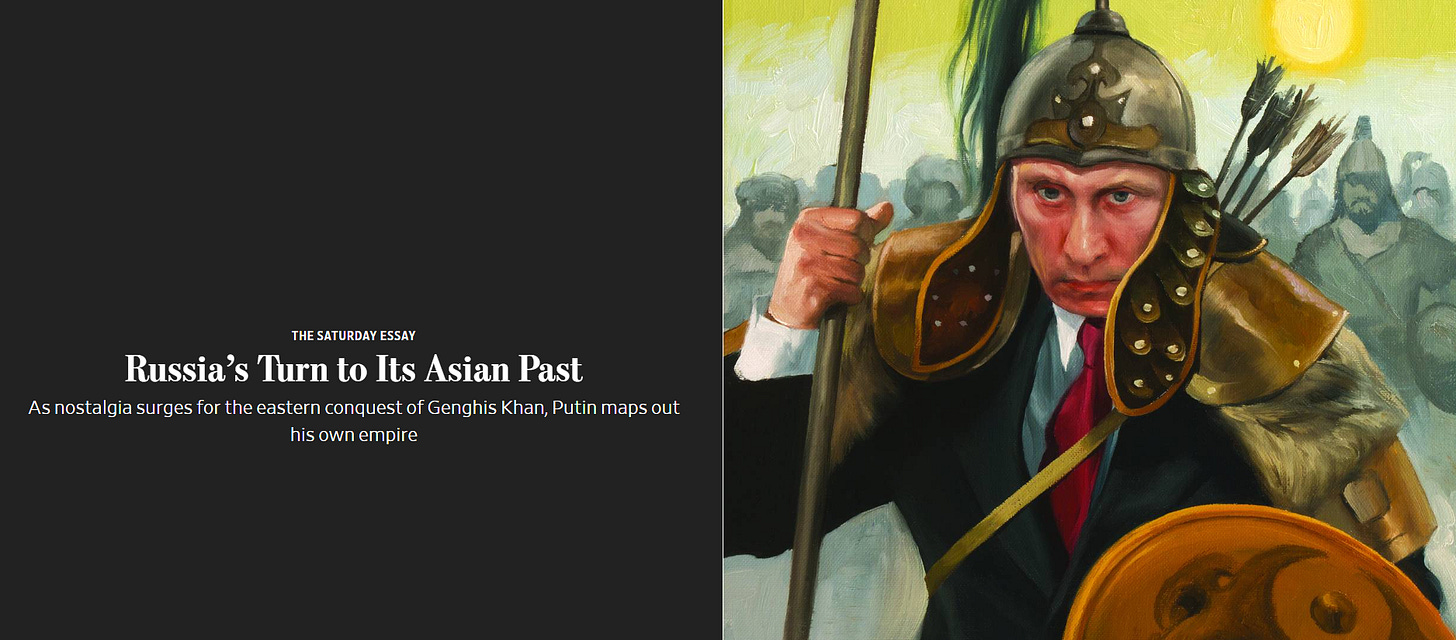
And it is not just white Western authors who are guilty of Orientalising their Russian coding in fantasy. I’ve read plenty a book which heavily leans into the “Western Saviour” stereotype. We see it most starkly in Global Southern settings like, say, Afghānistān, including “military romance” works by Rebecca Yarros, but this phenomenon is observable in Russian-coded fantasy too. The noble race from a heavily Western-coded nation akin to England or France coming to bring their knowledge and resources to save the subjugated people living in huts in a Mordor-esque grimdark northern stronghold rife with state violence and misogyny. It is a Western person co-opting Eastern pain which is not negated by said Western person potentially being non-white. In fact it is worsened, for they are allowing the Anglo-Franco-German imperial core to wield them against other marginalised identities who may literally have no voice due to linguistic barriers. Western authors take Eastern cultures not for the want of bringing them into the Western consciousness as whole entities, but as a “flavourant”—an aesthetic for the backdrop of a quintessentially Western story, because these subjugated Eastern people are never the fulcrum of the narrative, but a prop for the righteousness crusade of a Western-coded hero.
And thus, violence against the East and Global South is normalised. In its worst form, Western forces can continue to use this precedent as justification to “intervene” in and invade foreign nations for the supposed “good”, and Western “leftists” maintain a derogatory view of our suffering as “natural”, getting galvanised and damn-near excited to watch our slaughter because they suddenly have a “cause” to virtue signal about.
The reason why I am primarily harping on about this sort of representation, and not the outright usage of Russian coding in caricaturish villains, is because fantasy literature doesn’t tend to have that issue as much—it is atrocious in film, though, especially Hollywood: America’s four horsemen of the apocalypse are Russia, China, North Korea, and Cuba, after all. Moreover, a lot of people tend to mistake these inherently Orientalist framings as “positive”, and a lot of Orientalist racists don’t realise they are being racist at all, thinking instead they are behaving the way they are in good faith, or that they’re giving a compliment. It flows in a similar vein to the mystification and glamourisation of things like SWANA cultures. It is indeed just fetishisation and appropriation of our cultural practices and aesthetics like bellydancing and oud, but Westerners don’t grasp the reality that just because something is prettily described, or because it’s not a woman partaking in it as per stereotype, doesn’t mean it is positive or acceptable.
Here too we must delve into the discussion of slurs and dehumanisation.
One term which is often used derogatorily to refer to Slavs, particularly Russians, is “orcs”. Violent, grotesque, uncivilised. We’ve seen this movie before.
It is then in unfathomably poor taste that Western authors not only frame their Russian-coded countries as crucibles of darkness and witchery, but also their Russian-coded people as non-human, as goblin-like or demonic or animalistic. And I admit, even I had moments when I thought this was interesting, solely really owed to the fact that I liked the creature design. But as I became more critical and discerning, I understood just how insidious this characterisation is.
Though to a much smaller extent and with far fewer historical precedents on the part of the aforementioned, this does mirror the disturbing portrayal of Native Americans as beings who can shift into animals—only semi-human, and thus deemed worthy of extermination by the coloniser. Or of “miDdLe eAsTeRn” people being characterised as seductresses, as thieves, as mysterious sorcerers with hooked noses and glowing orange eyes carrying snake staffs. It’s barbaric but it’s home, right?
Edward Sa‘īd vocalises this in Orientalism with incontestable clarity:
“Always there lurks the assumption that although the Western consumer belongs to a numerical minority, he is entitled either to own or to expend (or both) the majority of the world resources. Why? Because he, unlike the Oriental, is a ‘true’ human being.”
Orientalism is racism. Full stop.
But now that we have briefly perused the macrocosm, I endeavour casting a magnifying glass to the microcosm to dissect the innards of this discourse.
Watch your step.
Whitewashing and White Supremacy
If you’ve been listening to my chameleonic accent and the high yet fluctuating pitch of my voice on my YouTube channel, and wondering what on Earth is going on here and why is she so annoying, what I’m doing is code-switching. My nondescript accent is quite thick, but I can somewhat dilute it, and it is actually very common for ESL individuals to speak English in a higher pitch. I can choose to drop the accent act at any time—and it is indeed easier for me to talk and get my tongue around pronunciation that way, even if it isn’t much to the Anglophonic ear’s liking—but for social ease, and indeed safety, I choose instead to mask it. I choose to speak in higher, what’s perceived as “friendlier”, tones. I choose to keep the English grammar intact and perfectly untampered-with to not appear as “uneducated” and “lowly” in a way that would be weaponised to marginalise me. While I understand the appeal of this sentiment, facetious as it may be—
—it is unfortunately not within everyone’s privilege to have an outlook so Devil-may-care on the integrity of the English tongue.
And what is the point of that preamble, anyway?
In the West, by which I mean the Anglo colonies (e.g. US, Canada, Australia) as well as entities like Germany and France—as I specified in my previous publication, white supremacy persist not simply among white people or within the confines of interpersonal social relationships, but systemically within institutions and media, and, most insidiously, internalised by non-white Westerners.
Linking to the subject of Imperialism, Western entertainment media’s obsession with Russian nobility, almost reminiscent of Egyptomania, has constructed a falsely dichotomous image of what Russia is.
The now and the recent history: an austere, dark, oppressive prison of bitumen and barbed wire and concentration camps where the state murders you for speaking a word out of line.
And then the before: opulence and glitz and yeah the populace were slaves and slaughter bathed red Siberia and the Caucasus but not like in the USSR(!) I mean Mother Russia the great empire was a global citizen and they were even nice to the Germans!
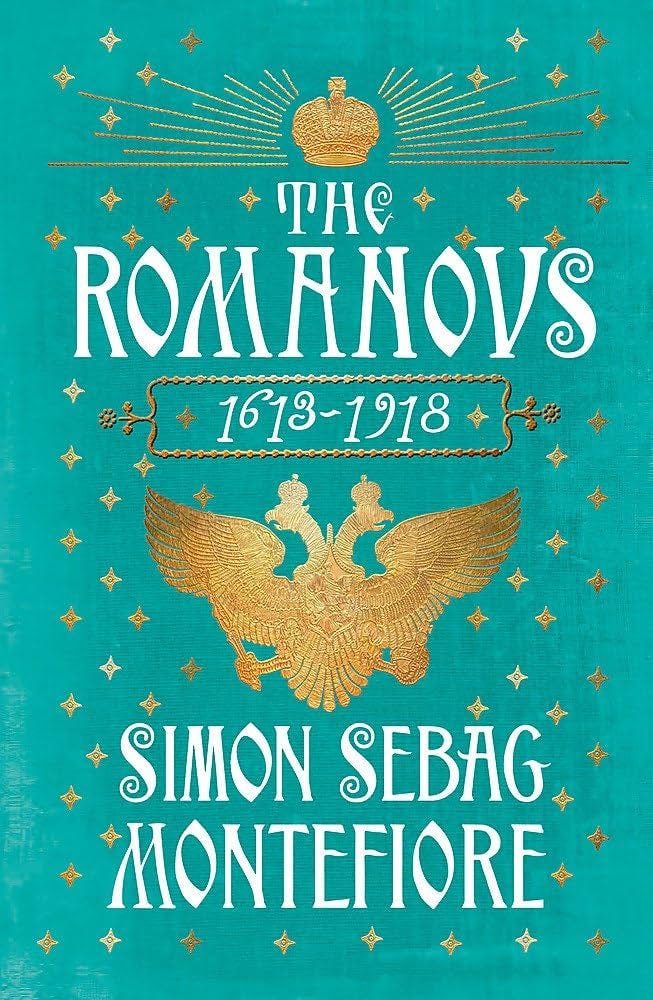
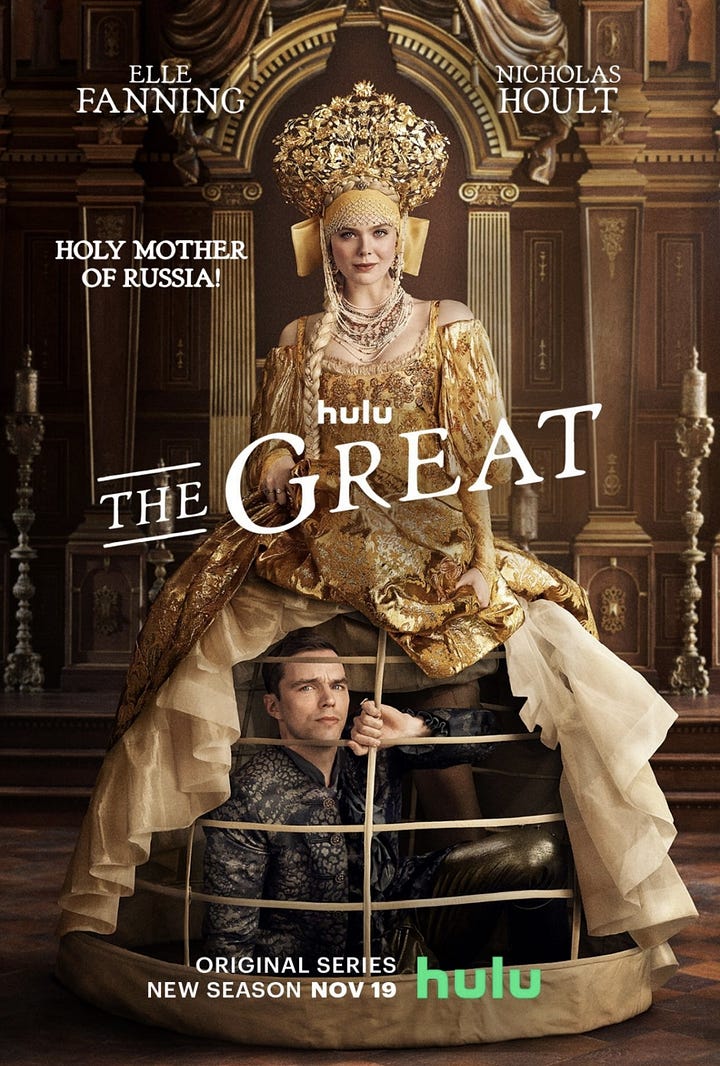
This is an Orientalist trope: The Great Past.
Miṣr (i.e. Egypt) is a victim of it. India, Greece, Irân are victims of it. And so Russia must necessarily become a victim of it too.
Russia and Russian history are whitewashed by the West, both racially and in the sense of retrospectivelly cleaning up its violent history (callback!). So, authors who want to employ it as coding to spice up their fantasy book—but not too much! we wouldn’t want the white readers to cry lest they taste too much aghtor!—whitewash their own writing, oft-times inadvertently, as a product of sociopolitical conditioning.
While this whitewashing comes in externally, i.e. from the West, the white supremacy is actually internal—meaning born of Russia.
Now, Russia doesn’t have the concept of “whiteness”, and race isn’t really a thing, but I’m still code-switching here: trying to speak in a way Anglophones will understand. It’s more Russocentric racism that’s at play here, rooted in the aforediscussed Russian imperialism and continued acts of colonial aggression, but I’m at least attempting to keep this discussion accessible as I’m not explaining this for people who are awake to the extent Orientalism—they don’t need me.
We see this convergence of whiteness so blatantly in L. Bardugo’s GrishaVerse.
While Ravka, the Russia-coded nation, is at least not depicted as fully “white”, though in this series Bardugo falls into the very common white author behaviour of vaguing about the ethnicity of potentially POC characters (also Russians are incapable of falling into the Western category of “white” due to the racialisation of their culture), Ravka is nevertheless an Orientalist goldmine. It is a highly militarised bastion of murk and mystery. The Unsea is there, Novokribirsk is a clear analog of Novosibirsk, the site of some of the cruellest gulags and concentration camps in Soviet history, Ravkans are stigmatised magic users whilst being conversely fluffed up as a nation with “gender equality”. Though it isn’t uncommon to see Russia coded as hyper-patriarchal and extremely misogynistic in fantasy novels by authors who have absolutely no insight into how that dynamic works in the East.
You might argue, “but the representation of Fjerda is even more negative!”
Yet to compare Germany, and otherwise Nordic nations, to Russia in a discussion such as this is beyond fallacious when the cultural implications are so vastly divergent. Westerners are not institutionally socialised to hate Germans and Nordics, just as they aren’t socialised to hate French and English people.
We’ll return to the GrishaVerse shortly.
In the meantime, for a much rougher and more blatant (as well as communally accepted) example of Russophobic [and otherwise] Orientalism, let’s take a look at Emily A. Duncan’s Wicked Saints.
Kalyazin (still a surname), the Russia analog here, is depicted as deeply superstitious and piously religious, as genocidal against its neighbour, as a land of seemingly endless winter. Meanwhile, Tranavia, a fictionalised Poland, has been criticised by Jewish readers as blatantly Antisemitic through the employment of the blood libel conspiracy theory. This actually plays a part in discourse, because the West’s conflation of Eastern Europe with Jewishness is well-documented. And with reference to Wicked Saints, it is exemplified and executed. It’s the convergence of Western whitewashing, Russian imperialistic projects, and the different brands of the same vile Antisemitism engendered by both polarities that crashed into each other, and the fallout was this series.
While there is absolutely room for these very real allegories to history within fiction, it is not on a Western author to hold that discussion. It is their duty to listen to those who actually have lived experiences and cultural insight.
Am I essentially saying there are subjects that you have no right to touch?
Yes. Get gatekept.
So what was the point of that preamble?
Respectability politics.
I and my fellow Easterners have to whitewash ourselves to be “palatable” for the Western status quo, and so too these authors whitewash Eastern culture for not only the appeasement of a culturally-curated audience, but also for that sweet, sweet cheque. Because you can’t sell gritty, authentic, yet nuanced reality where the well has already been poisoned long ago.
And this dovetails perfectly with the next and final subtopic:
Indigenous and Minority Erasure
Russia’s colonial past and present has made it incredibly ethnically diverse, with well over 190 ethnic groups residing on the vast territory. Even within its indigenous borders, diversity abounds.
Yet this is never portrayed or explored in these fantasy novels.
And here, we return to the GrishaVerse.
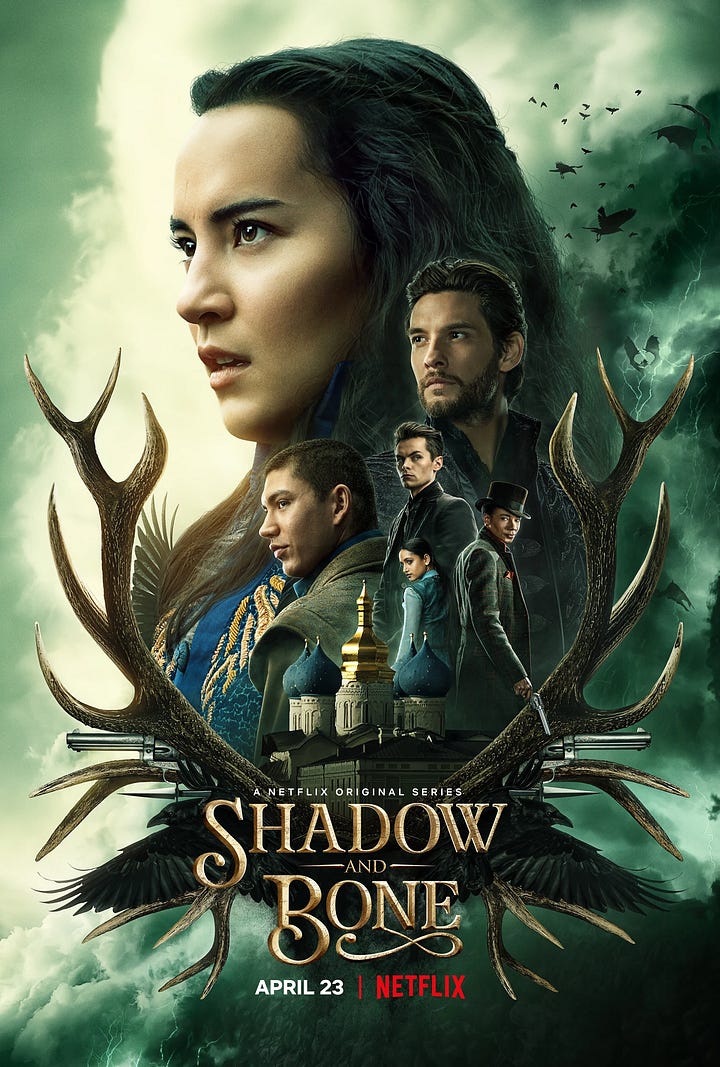

The character Inej from Six of Crows is Suli, a people from Ravka. They are described in racialised stereotypes of being dark, itinerant, practicing circus and music, and being generally free-spirited, but not without their own oppression.
If you are actually discerning any of what I just listed off, you will understand exactly what coding this is.
Ruská Romá.
Russian Romani.
And yet the vast majority of readers have no idea because it is not made evident unless you have personal knowledge, like myself who grew up around Ruská Romá. This is just yet another example of a white author vaguing about a character’s precise POC status. Romani coding is not something you toss around. Roma are objectively the most marginalised demographic worldwide, to the point that the slur weaponised against them is so normalised that people don’t even know it’s a slur at all. People use it as a name. An aesthetic. All the while Roma fight tirelessly in solidarity with people who don’t even know they exist, whilst being violated and murdered. You know Roma were the second of the two ethnic demographics subjected to Hitler’s “Final Solution”?
As an aside, if you read the Six of Crows fan wiki page on the Suli, it is so offensively-written.
We see representation of seemingly Roma in Burning Glass by Catherine Purdie: the Romska.
While it is much more obvious what this allegory is of, the usage of these people as a plot device for the gadji main character’s arc may certainly be worth a bombastic side-eye.
And, of course, we cannot forego talking about the Shadow & Bone show.
L. Bardugo admitted that she had made her story a tad too white when she first wrote it, and yet the solution was not remedying the whitewashed nature of Ravka by bringing in colonised and marginalised indigenous ethnic minorities, but to make Alina Starkov (that surname really grates the ears but not nearly as much as the Darkling’s), mixed Shu—Shu Han obviously being based on an essentialised China. Xiran Jay Zhao made an excellent video regarding this, albeit from a different perspective.
Russia is full of indigenous ethnic groups like Kalmyks and Buryats and the Sakha and Koryo-saram and Luoravetlat and Bashkirs which could have enriched the discussion of racism this show… already failed to have.
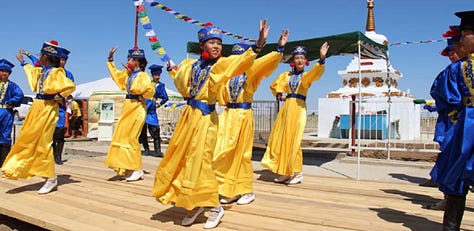
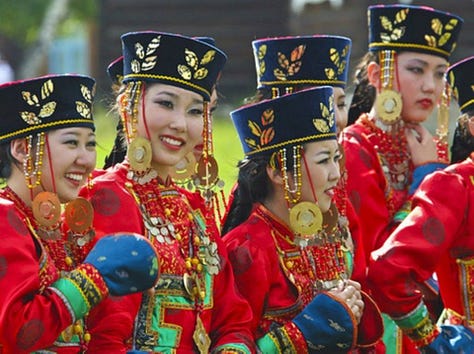

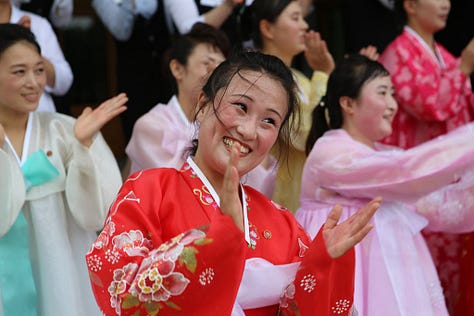

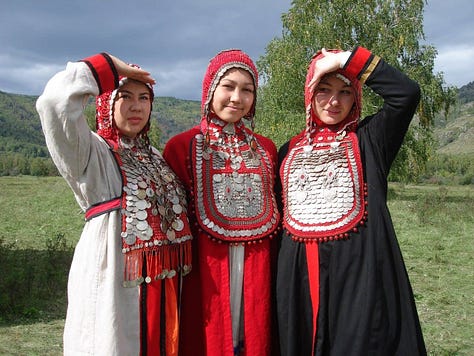
In worse cases, the “ethnic diversity” in the fantasy Russias is approached by giving us different breeds of non-human creature. One of them must necessarily be grotesque and half-mad, another demonic if not outright a demon, and the third some meek, subjugated ethereal critter. Throw in some Antisemitic tropes in too and maybe a Roma analog, just to really let the readers know this is Russia we’re trying to emulate here.
There’s a reason Russians tend to hate these franchises.
Now, I don’t believe this is a topic white Westerners, or any Westerners, should be tackling, just like the intricacies of Russian history, but it more serves as grim confirmation. I’ve had authors whom I’ve criticised for this behaviour tell me their “Slavic” early readers were “fine” with it. But do you notice the dogwhistle? “Slav” is conflated with “Russian”, when every single Slavic country and culture is unique. What you’re witnessing here is the legacy of both Russian imperialism and colonisation, and the West’s ineptitude within the arena of nuance and cultural compassion. I don’t care what a Pole thinks about the Russian coding in a piece of literature, just as I don’t care what a Russian thinks of Polish coding.
These are all complexities which Western entertainment media couldn’t afford its viewership for all the aforementioned reasons. It’s too gruelling to dispel the very stereotypes and conceptions instilled by it, to give Westerners a glimpse into the reality of the East.
It was a self-fulfilling prophesy.
This is such a complexly layered issue of racism, appropriation, Orientalism, misinformation and institutionalised ignorance that I can scarcely dissect it all here. But I’ve made a dent. And I am but one person.
~Sfar~Ⓐ🧿֎⨳



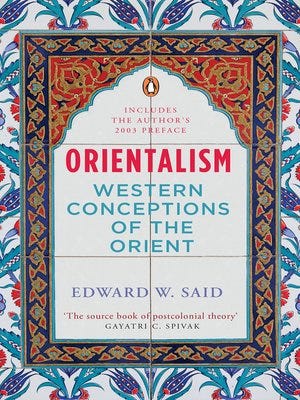

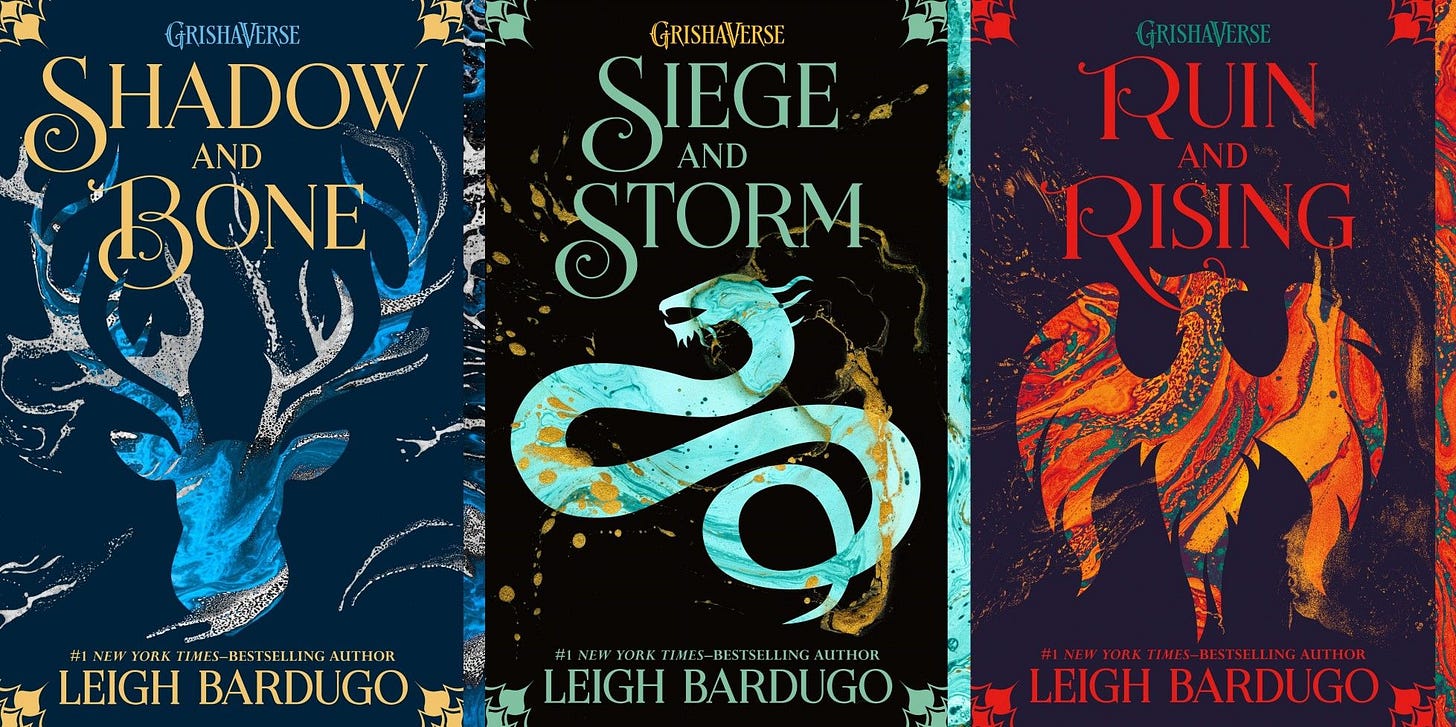
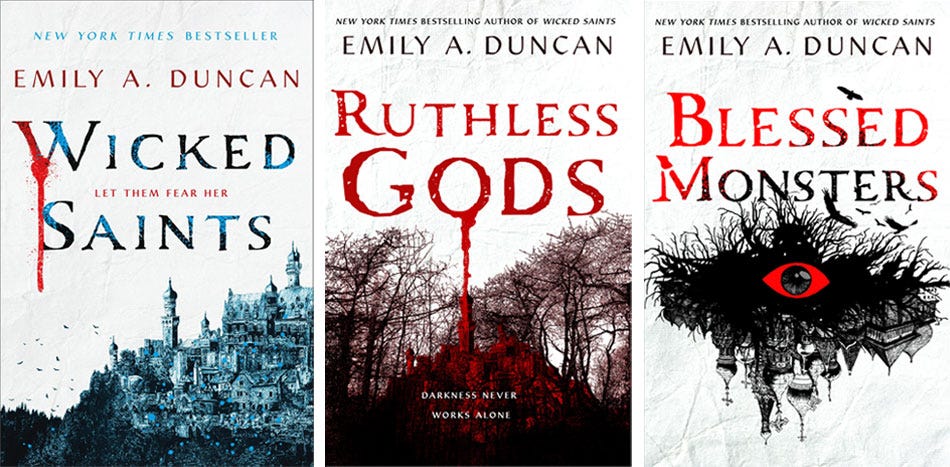
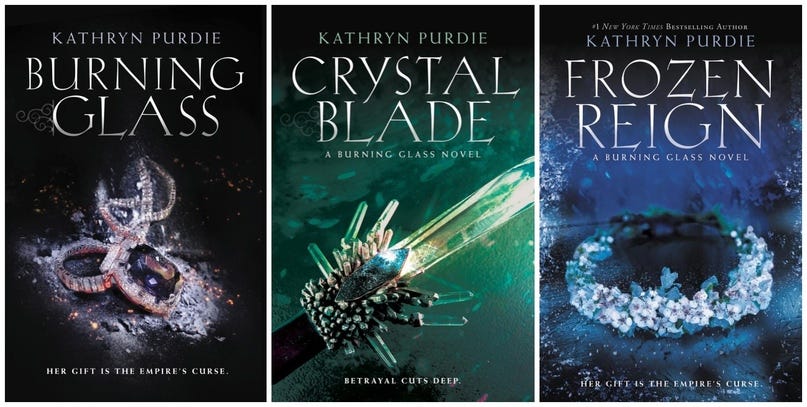

A really eye-opening read! I read Six of Crows years ago and really enjoyed the writing, but after reading this (+ watching your related vid) I have a completely different perspective now. You've def given me a lot to chew on, as a hobbyist author and worldbuilder myself!
As a (related, I hope) aside, this got me thinking about Shu Han's worldbuilding too... I'm Chinese, and honestly, years ago I was so desperate for any "fantasy China" that when I saw Shu Han characters like Kuwei I was thrilled. But the worldbuilding is, uhrm, how do I put this. Yeah. Re: whitewashing of Eastern culture for appeasement of a culturally-curated audience... I actually feel this a lot with English-language ~fantasy China~ novels. Many of the novelists are of Chinese descent, yet somehow the books they write feel like "Panda Express China". Like taking the zodiacs and pig ears and Monkey Kings and qi... like LOTR but with the paint of pinyin names.
Re: diversity within Russia - another point I resonated with. China is so freaking big and there's so much cultural and ethnic diversity. So whenever Anglo authors cram *multiple* EA countries into one (1) fictional country it's kinda... Yeah. Treating the entirety of China as a monolith is bad enough, but all of East Asia? Yikes. (Not saying this is snth Bardugo in particular is doing, just a pattern I've noticed)